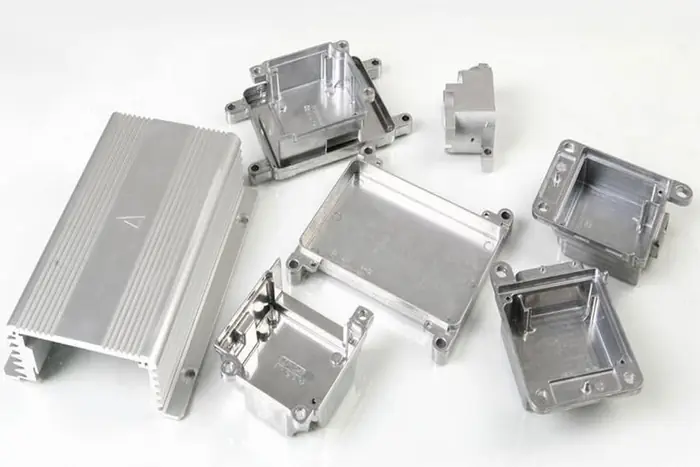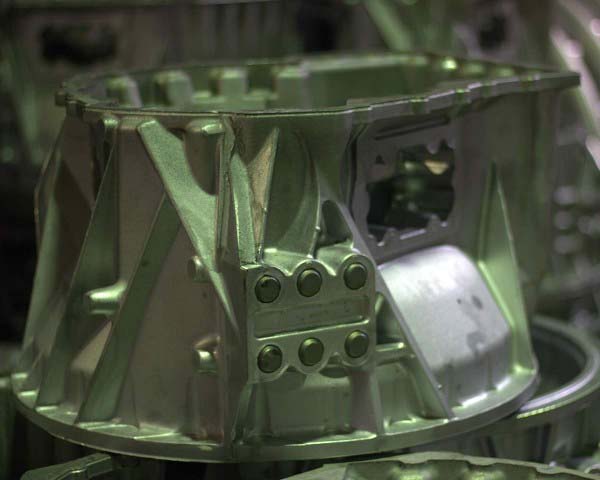How Factory Provider Enhance Production Effectiveness and High Quality in Industrial Applications
Factory solutions play an important function in boosting manufacturing efficiency and quality across various industrial applications. By carrying out innovative metal casting methods, these services assure parts are manufactured with accuracy and consistency. This not just minimizes preparations however also minimizes waste, fostering much better collaboration between makers and factories. The impact of premium elements on functional performance elevates crucial inquiries regarding the future of industrial production. What innovations exist in advance in this progressing landscape?
The Function of Foundry Services in Streamlining Manufacturing Processes

Moreover, foundries typically offer knowledge in alloy development, making it possible for suppliers to use sophisticated products that enhance item performance. The collaboration in between makers and factories promotes a far better understanding of manufacturing demands, resulting in optimized procedures and improved product designs. By leveraging shop solutions, makers can achieve greater adaptability, adapt to altering market needs, and maintain competitiveness in the sector. Overall, the function of shop solutions is necessary in helping with a much more cost-efficient and effective production landscape.
Advanced Technologies in Shop Workflow
Innovative modern technologies are changing shop operations, considerably boosting productivity and accuracy. Automation plays a vital duty, with robot systems enhancing repetitive jobs such as molding and material handling. Furthermore, innovations in computer-aided layout (CAD) and computer-aided production (CAM) systems allow factories to produce complicated geometries with greater precision and decreased material waste.
Additionally, the combination of man-made intelligence (AI) and equipment knowing boosts quality control by keeping an eye on processes in real-time and predicting potential defects prior to they occur. Using sophisticated materials, such as light-weight alloys and compounds, better improves the efficiency features of actors products.
3D printing technology is transforming prototyping and tooling, permitting for quick modification and lowered lead times. Jointly, these innovative modern technologies not just raise manufacturing effectiveness however additionally ensure that the end products meet rigid high quality requirements, positioning shops at the center of contemporary industrial applications.
Reducing Lead Times With Effective Factory Practices
Reliable foundry techniques play a crucial function in reducing preparations within production atmospheres. By executing streamlined production procedures and progressed organizing techniques, producers can enhance workflow and optimize resource allocation. These improvements not only accelerate output yet also contribute to general functional efficiency.
Streamlined Production Procedures
Improving manufacturing procedures is vital for lowering lead times in the production industry. Reliable foundry methods, consisting of optimized process and source management, play a critical function in accomplishing this objective. By minimizing waste and improving interaction among teams, foundries can greatly enhance their operational effectiveness. The application of standard procedures likewise adds to regular top quality and faster turnaround times, allowing producers to react even more quickly to market demands. Additionally, the assimilation of sophisticated innovations, such as automation and real-time surveillance systems, assists in identifying traffic jams and helping with prompt interventions. Overall, a focus on streamlined manufacturing processes not only speeds up lead times however also boosts the total competition of industrial applications, making sure that items meet client assumptions efficiently.
Advanced Scheduling Techniques
Efficient production processes normally lead suppliers to check out sophisticated scheduling strategies as a way click over here to better lower preparations. By using advanced algorithms and software program, shops can optimize process, lining up manufacturing timetables with demand forecasts and resource schedule. Methods such as Just-In-Time (JIT) scheduling reduce stock prices while making sure timely product delivery, thereby enhancing functional efficiency. Furthermore, incorporating real-time data analytics permits foundries to prepare for prospective delays and readjust timetables proactively. This flexibility not only streamlines procedures however additionally enhances general performance. Moreover, collaborative preparation with customers and providers can foster a more synchronized supply chain, additional reducing preparations. Ultimately, these advanced scheduling techniques equip factories to achieve greater performance and exceptional top quality in their manufacturing processes.
Making Sure Accuracy and High Quality in Metal Spreading
Guaranteeing accuracy and top quality in steel spreading calls for a thorough technique that includes every phase of the production process. This process begins with cautious design and design of the molds, assuring they can withstand the molten steel's temperature level and pressure. The option of top quality resources is crucial, as pollutants can compromise the end product.
As soon as the materials are prepared, specific temperature control throughout melting and putting is essential to attain the preferred residential properties in the cast metal. Monitoring solidification and air conditioning prices further warranties dimensional precision and surface finish.
Quality control techniques, such as non-destructive testing and evaluation, are crucial to recognizing problems early in the procedure. Aluminum Foundry. In addition, using proficient why not find out more personnel who comprehend the nuances of steel spreading contributes considerably to preserving high standards. In general, these techniques collectively boost the reliability and efficiency of cast elements in numerous industrial applications
Lessening Waste and Maximizing Source Application

Furthermore, reusing scrap steel within the shop itself can considerably reduce waste, changing spin-offs into useful resources. Lean manufacturing principles likewise add to waste reduction by simplifying procedures and getting rid of unnecessary steps, resulting in a lot more efficient operations.
Normal upkeep of devices assurances this contact form peak efficiency, stopping break downs that can result in squandered materials. By concentrating on these techniques, foundries not just reduce prices but additionally add to lasting methods, lining up with the growing demand for environmentally liable manufacturing techniques in commercial applications.
The Affordable Benefit of High-Quality Elements out there
Premium parts supply a considerable affordable advantage in the foundry market, where accuracy and durability are extremely important. Producers that prioritize exceptional materials and workmanship can enhance item efficiency and dependability, bring about boosted customer complete satisfaction. This benefit is especially noticeable in markets such as automotive and aerospace, where part failure can have disastrous consequences.
Top notch parts usually result in lower maintenance expenses and extended item lifespans, which can be attractive marketing factors for prospective customers. As market needs grow for sustainable and efficient innovations, the emphasis on high quality becomes a lot more critical. Companies that invest in high-quality shop services not only improve their manufacturing procedures yet additionally differentiate themselves from rivals who may compromise high quality for expense financial savings. Subsequently, the dedication to high-quality parts ultimately translates into a stronger market setting and lasting company success.
Often Asked Concerns
What Types of Products Do Factory Solutions Generally Function With?
Foundry services usually function with steels such as aluminum, brass, iron, and steel, in addition to various alloys. They also handle products like porcelains and composites, catering to diverse commercial needs and requirements in manufacturing processes.
Exactly How Do Factory Services Effect Overall Supply Chain Monitoring?
Factory solutions considerably boost supply chain administration by improving product sourcing, lowering lead times, and making certain constant quality. Their ability to give tailored solutions promotes collaboration among stakeholders, inevitably improving total operational efficiency and responsiveness in manufacturing.
What Industries Benefit A Lot Of From Foundry Services?
Industries such as vehicle, building and construction, aerospace, and consumer items significantly profit from shop services. These fields depend on precision castings to fulfill stringent high quality criteria and improve their total production processes and item efficiency.
Are Shop Services Ecologically pleasant and sustainable?
Factory solutions can be lasting and eco friendly, specifically when employing sophisticated innovations and procedures - Precision aluminum casting. Innovations such as recycling materials, minimizing emissions, and enhancing power usage add to lessening their eco-friendly influence in commercial applications

How Can Companies Select the Right Foundry Service Provider?
Firms can select the right factory company by examining expertise, production capacities, quality certifications, technology used, client reviews, and sustainability techniques while making certain positioning with their particular job needs and long-term business goals.
Shop services play a necessary role in improving production efficiency and top quality across different industrial applications. The cooperation in between makers and factories fosters a much better understanding of production needs, leading to maximized processes and improved item designs. Reliable foundry methods play a vital function in reducing lead times within manufacturing environments. By utilizing sophisticated formulas and software application, factories can maximize process, straightening production routines with need projections and source availability. Firms that spend in premium foundry solutions not just improve their production processes yet likewise distinguish themselves from competitors who might give up quality for expense savings.